ABZU review
Before I dive into reviewing Giant Squid Studios’ undersea adventure, here’s a quick look at the (probable) meaning behind the game’s title, complements of a basic web search:
AB-ZU: also called engur
literally: ab=“ocean” zu=“deep”
the name of the primeval sea below the underworld
fresh water from underground aquifers with religious fertilizing properties
Shoehorning ABZU into a textbook definition feels like the wrong way to discuss a game like this. But as you’ll quickly learn, the game doesn’t exactly answer its own mysteries, despite my efforts to solve them during the course of my “excursion.”
However, to set an emotional stage for the write-up, take a moment to scroll through a few screenshots:
ABZU provides an unforgettable experience that is part exploration, part encounter. As a nameless (or maybe just identity-less) diver, I began an adventure through an unknown ocean. From drifting through kelp forests to rushing along an ocean current, the pacing and tension can flip in a second. Most importantly of all, these changes never fail to evoke a visceral reaction.
And yes, there’s most definitely tension throughout ABZU. Venturing out from a cave or reef into the open water can be downright terrifying, given the murky and unfathomable depths that stretch out on every side. That anxiety surprised me at first, but when I thought back to a few of my own underwater experiences (snorkeling in Hawaii being the most recent) I could recall feeling similar emotions.
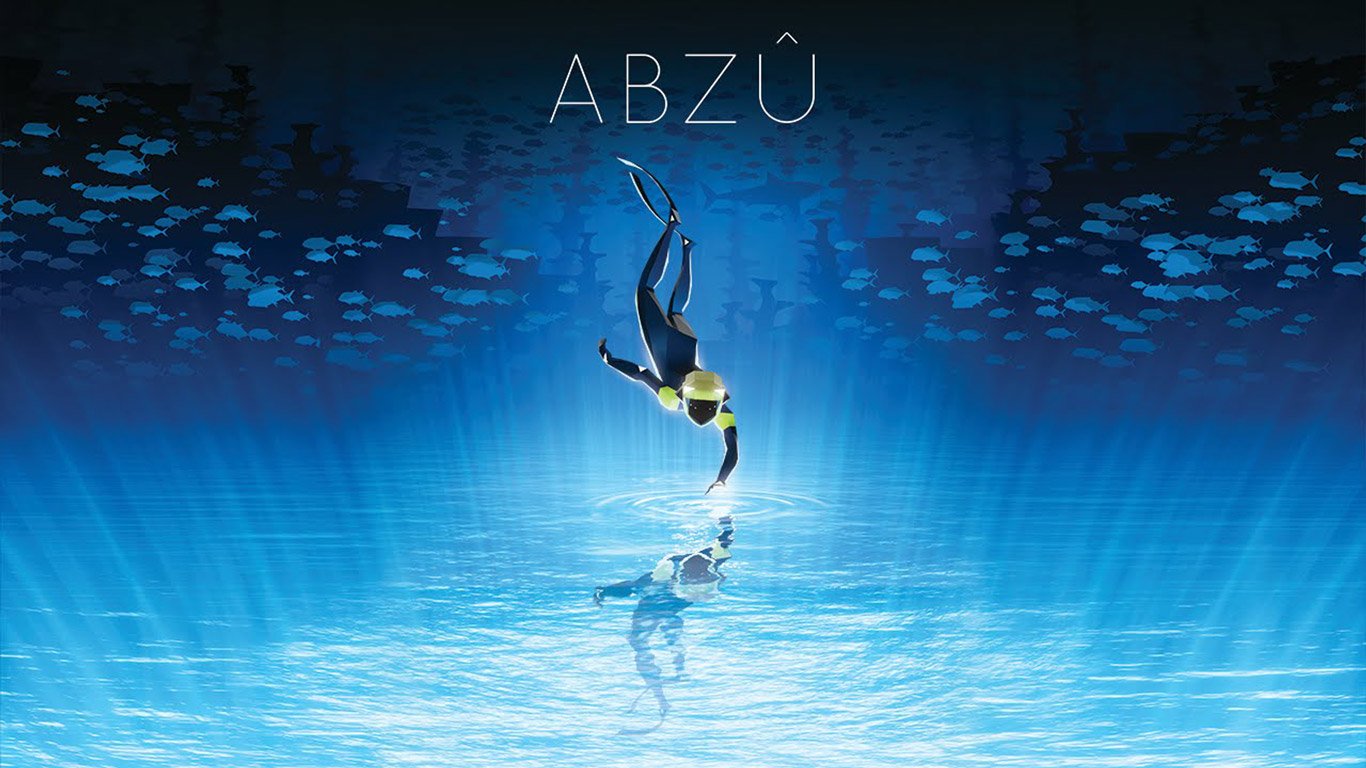
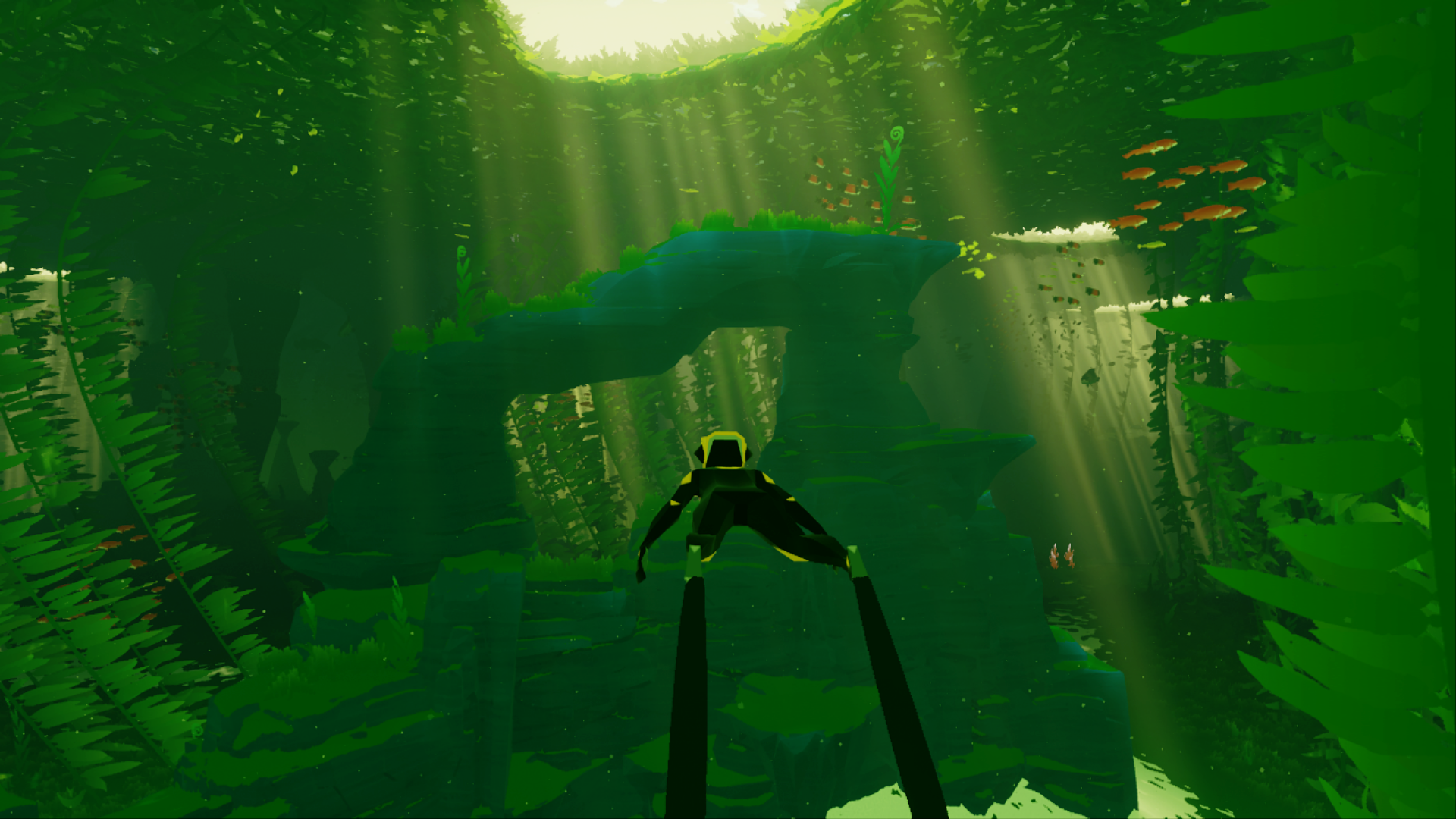
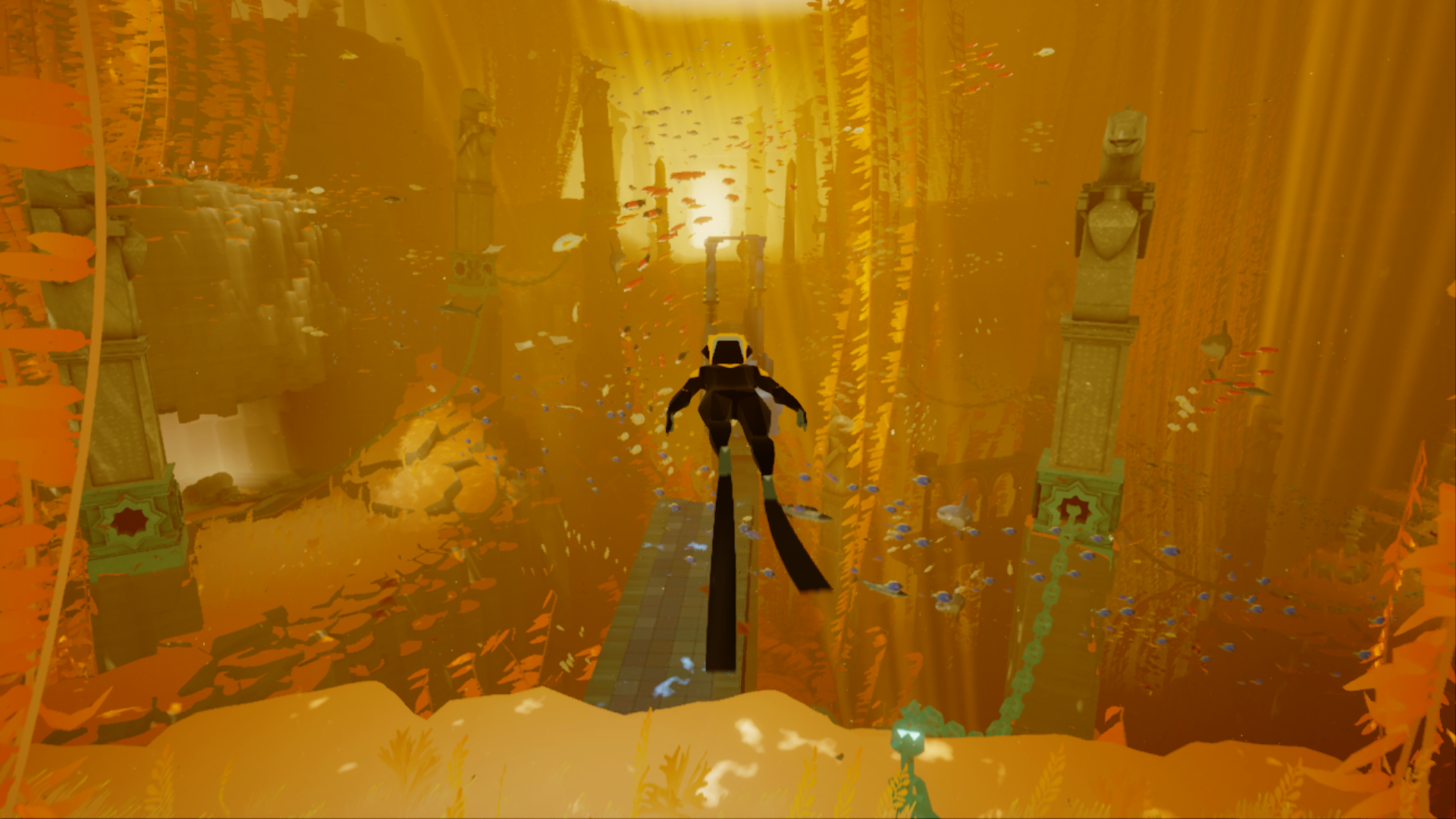
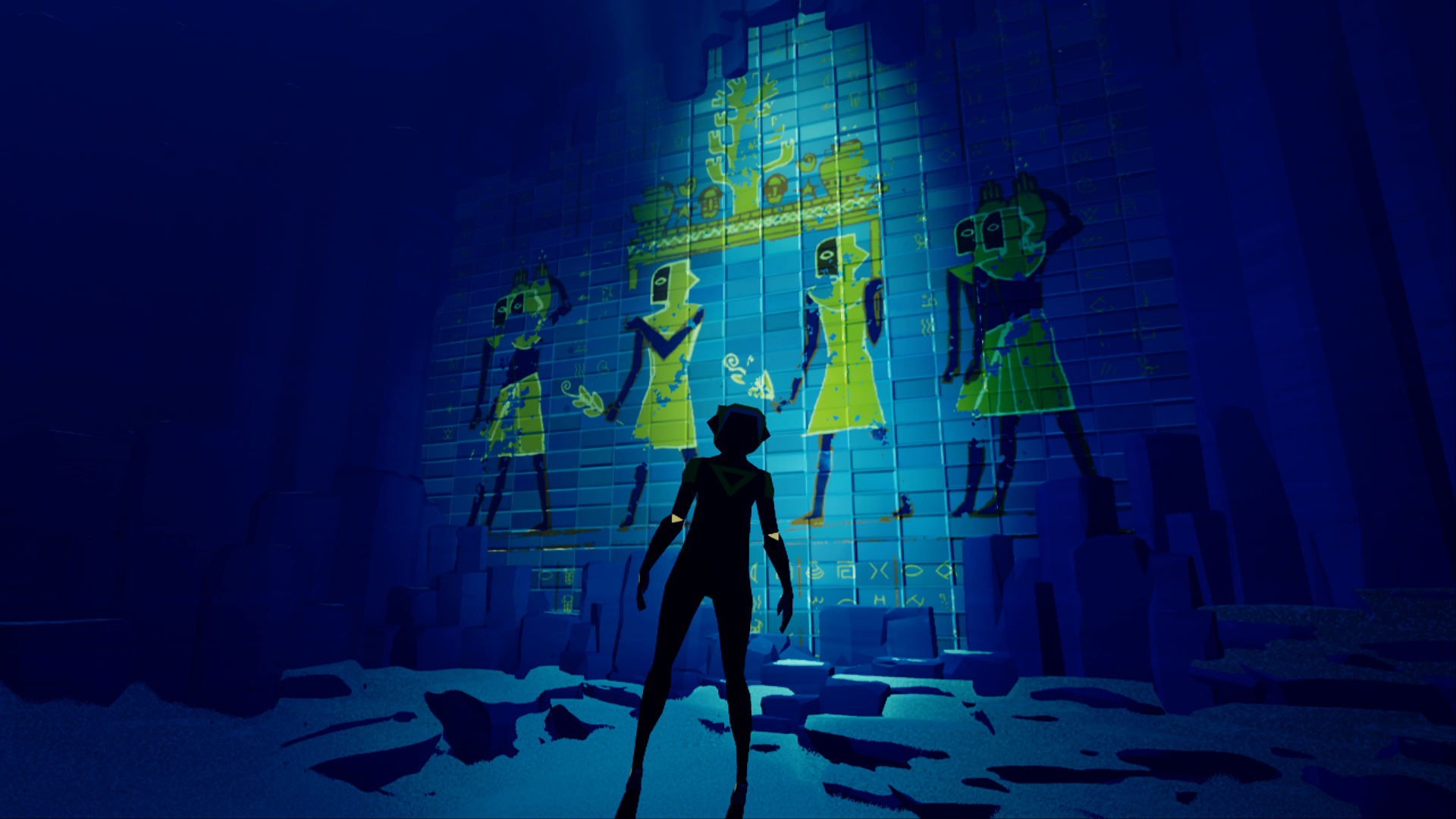
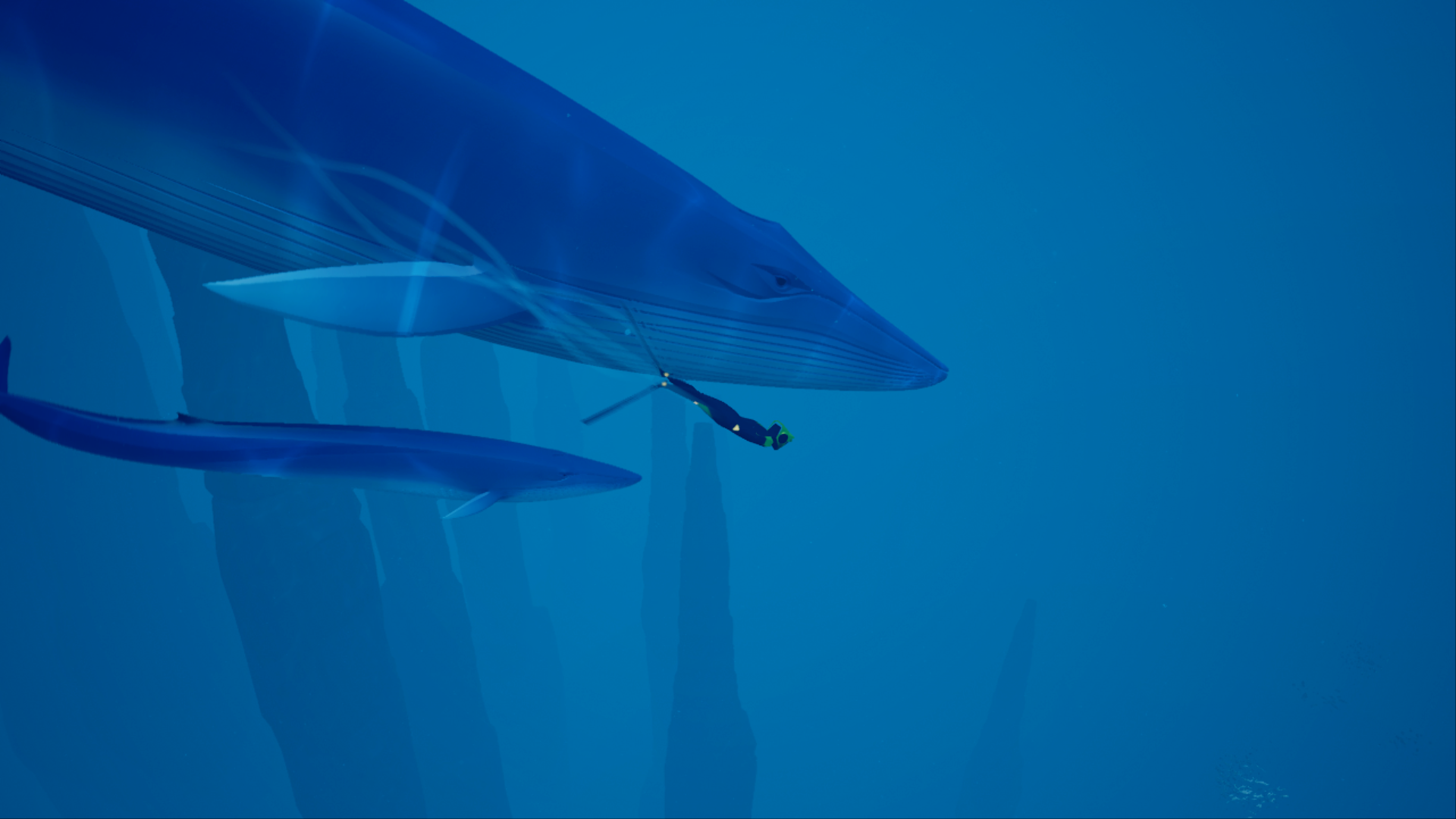
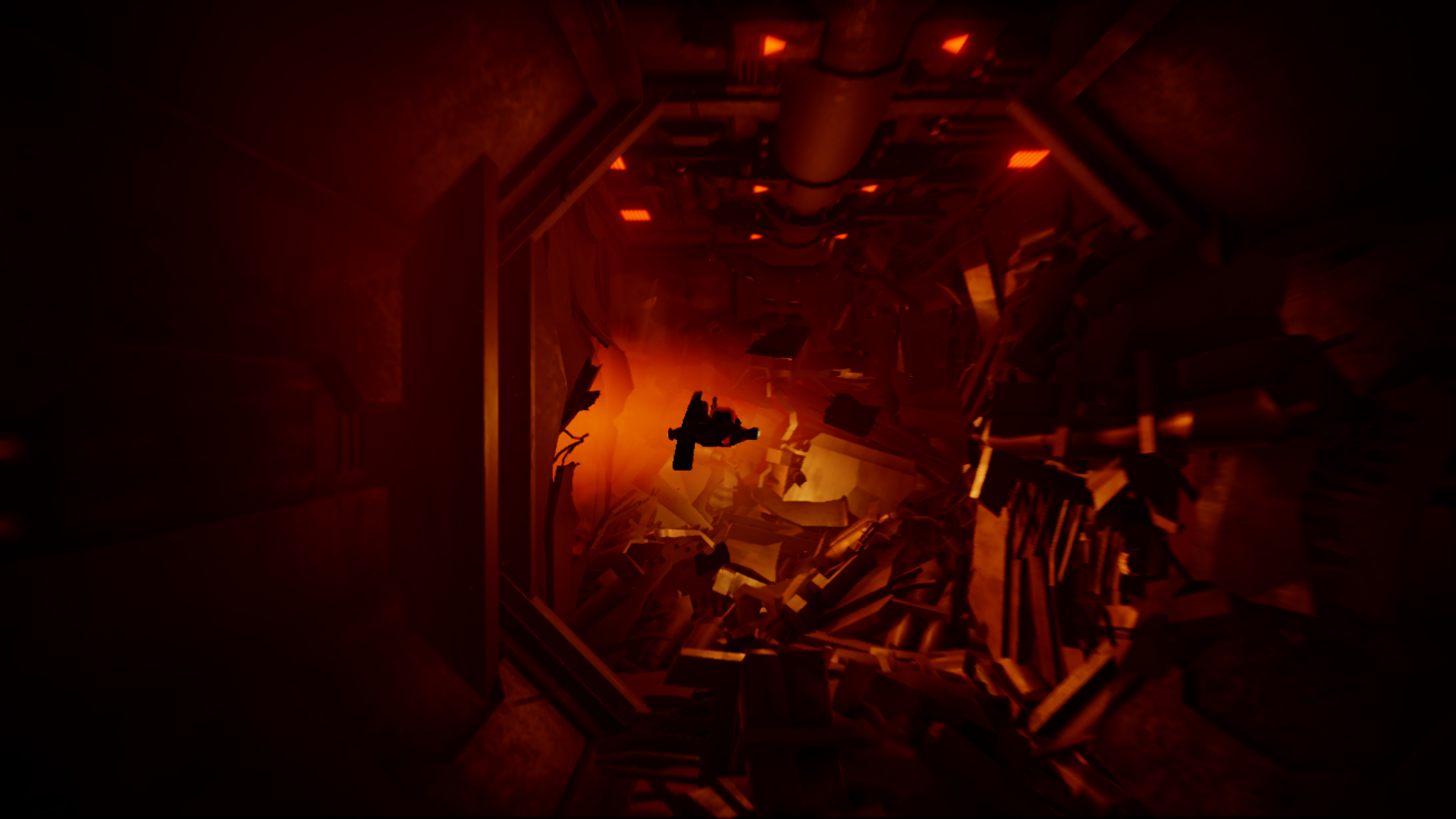
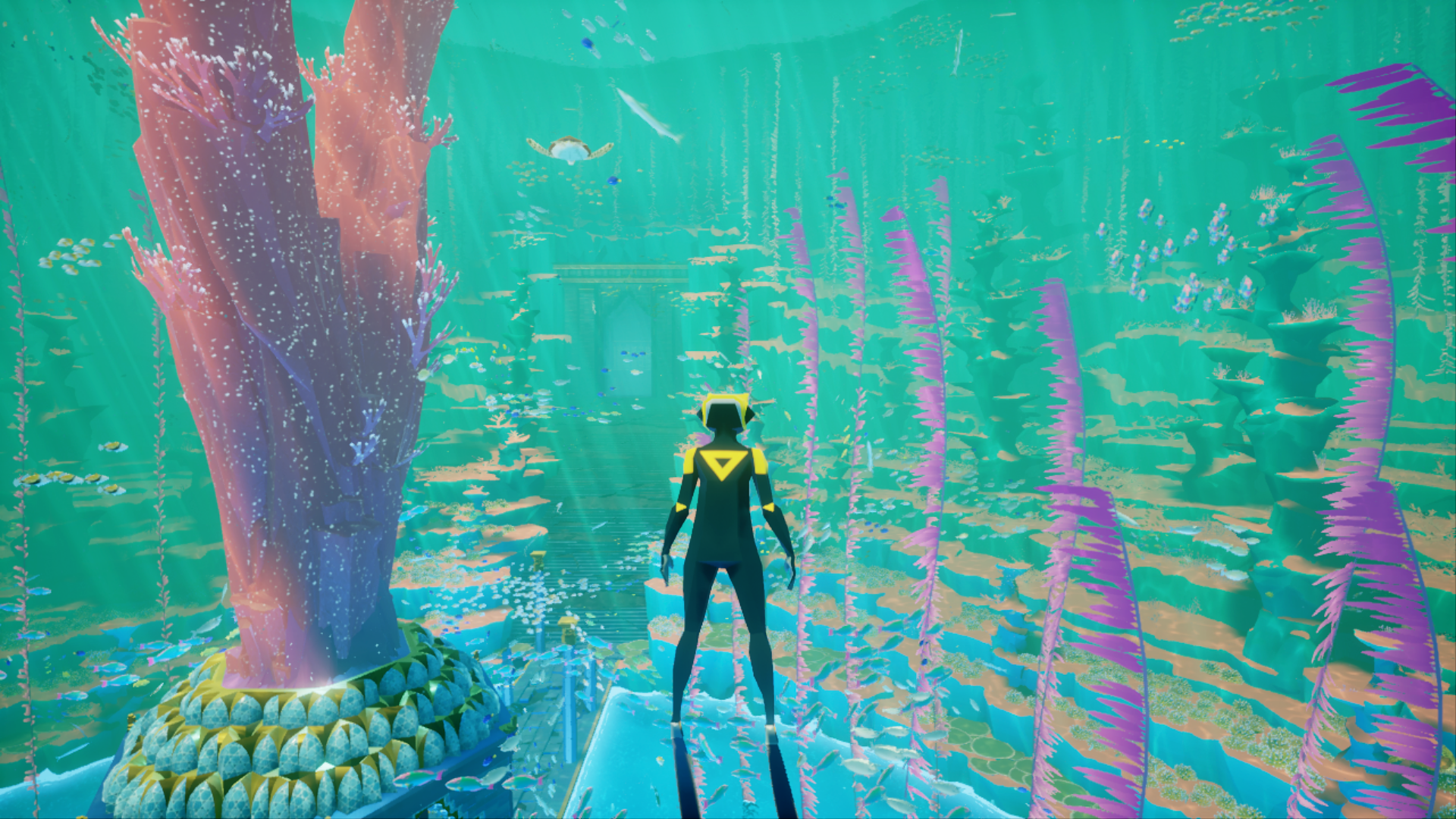
For all of mankind’s progress, we’ve only managed to explore 10% of the ocean. (For comparison, the oceans make up 99% of all livable space on Earth.) The unknown is perhaps the most frightening element for we terrestrial beings, and I suspect Giant Squid designed ABZU with that in mind. The blend of fear and discovery creates a driving force throughout the game, preying upon my instinctual responses to certain situations in the depths of the sea.
The music is another triumph for ABZU. Austin Wintory (who is quickly becoming one of my favorite game composers) wrote a masterpiece, something that guided my emotions just as strongly as the aquatic ecosystems that I swam through. The soundtrack marries perfectly with the game’s bright and playful art style, lending a sense of depth and importance while also helping the visuals stay clear of becoming “cartoony.”
I won’t even begin to describe the story and mystery that the game presents. ABZU’s primary focus is the cinematic and emotional experience; while narrative takes a back seat, I sat through several jaw-dropping moments after piecing the truth together. Some questions remain unanswered after the game ends, but they serve more to draw players back into another playthrough rather than create a sense of disappointment. And when I finally came to the end of ABZU, I watched the entire credit scroll, looked at my wife, and said, “I want to play it again.”
My only real gripe with ABZU involves the mechanics. Something about the inverted camera and the “weightlessness” of being underwater continually toyed with my sense of direction. I never failed to get where I wanted to go, but it wasn’t always pretty and often took a few tries. For all my enjoyment, I wish ABZU’s controls had been as seamless and free-spirited as the rest of the game.
In a nutshell
ABZU is many things: an educational undersea excursion; an emotional and vibrant piece of art; a living world; an earnest and heartfelt (if unspoken) story. And while ABZU never really solidifies itself as a great video game, I don’t think it tries to; it certainly doesn’t need to. Sometimes, the concept of “game is art” is powerful and comprehensive enough that a title is worth playing simply for the experience.
Pros
+ Nautical setting
+ Living ecosystems
+ Art style
+ Emotional soundtrack
Cons
- Swimming mechanics
- Unanswered questions

